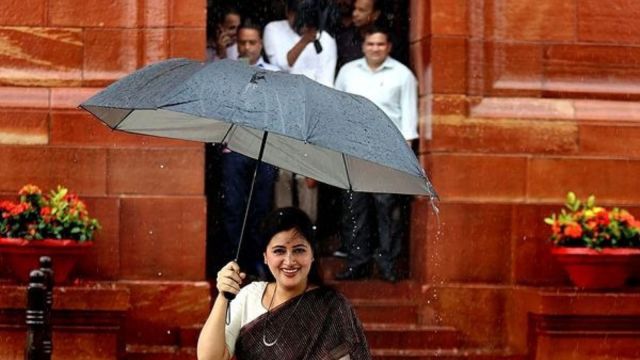In a significant political development, the Bharatiya Janata Party (BJP) on Wednesday announced Navneet Rana as its candidate for the Amravati Lok Sabha seat in the Western Vidarbha region. This decision marks a crucial shift in the political dynamics of the region and is expected to have far-reaching implications.
Navneet Rana is not a new face in the political landscape of Amravati. In the 2019 Lok Sabha elections, she contested as an independent candidate. Despite the fierce competition, Rana emerged victorious, backed by the then undivided Nationalist Congress Party (NCP). Her victory was seen as a testament to her popularity and her ability to connect with the people of Amravati.
Five years have passed since that decisive victory, and Rana has now decided to join the BJP. Her decision to switch sides has added a new dimension to the political equations in the region. As a member of the BJP, Rana will be expected to leverage her popularity and her understanding of the local issues to secure a win for the party.
However, the announcement of Rana’s candidacy has not been without controversy. The Amravati seat has been the subject of an intense power tussle between the BJP and Shinde Sena. Shinde Sena has been keen on contesting the seat, citing the precedent set in the 2014 and 2019 elections when the BJP conceded the Amravati seat to Shiv Sena during the seat division.
The decision to field Rana from Amravati has, therefore, ruffled some feathers. It has not only upset the Shinde Sena but also signaled a departure from the established norms. The move is likely to strain the relationship between the BJP and Shinde Sena, with potential repercussions for their future alliances.
As the political drama unfolds, the people of Amravati will be keenly watching. The outcome of this contest will not only determine their representative in the Lok Sabha but could also influence the political alliances and the balance of power in the region.



